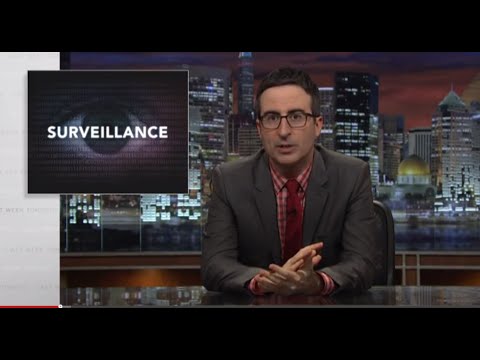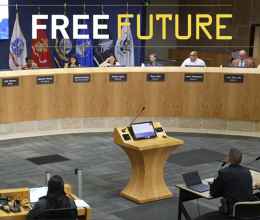On the most recent edition of “Last Week Tonight,” John Oliver explored the depths of the government’s surveillance capabilities with his typical brand of satire. In an unexpected twist, Oliver actually traveled to Russia for a face-to-face interview with Edward Snowden, the whistleblower who revealed many of the programs that now inform our larger understanding of how expansively the National Security Agency operates.


Oliver’s interview with Snowden has its fair share of adult humor and less-than-serious questioning, but some important information is focused on as well. For starters, Snowden emphasizes an important point about the difference between government surveillance of domestic communication versus foreign communication, namely that drawing a sharp line between the two is naïve on a technical sense and misguided when it comes to protecting freedom of speech and thought.
As Snowden previously helped reveal, communication that you either send or receive from overseas is open for copying, searching, and archiving from the NSA. It doesn’t matter whether you or the person you are connecting with are considered “targets,” they can still access your communication through a process known as “upstreaming.” As Snowden describes it to Oliver, upstreaming is “how they snatch (the contents of your communication) as it transits the Internet.” It’s a high-tech form of data collection that was authorized under the 2008 FISA Amendments Act, although thanks to Snowden we know that the government has exceeded even the minimal standards established for how extensive this type of collection can be.
The ACLU has been fighting against suspicionless surveillance such as upstreaming in all sorts of ways, and recently we’ve been joined by The Nation on our lawsuit, Wikimedia vs. NSA. As explained in this editorial, The Nation is joining our lawsuit because they recognize the chilling effect that this type of warrantless spying has had on their ability to conduct investigative journalism. If foreign sources can’t trust that their communication with editors and writers inside the United States will remain confidential, are they going to share important information that the public ought to know?
The broad topic of government surveillance is so complex and technical that at times it can feel overwhelming. But you don’t need to know the mechanics of upstreaming to recognize that the government shouldn’t have access to every single piece of communication ever sent, whether it stays inside the United States or crosses a border. Courts have thus far proved resistant to laying down the law with the government and forcing them to end data collection programs that are violating your constitutional right to privacy. But that won’t stop us from going to court. As momentum builds around this issue – whether through television appearances by whistleblowers or editorials by major magazines – we move closer and closer to breaking the logjam of endless surveillance and realizing a world where the government isn’t able to access anything it wants without even a drop of suspicion.










